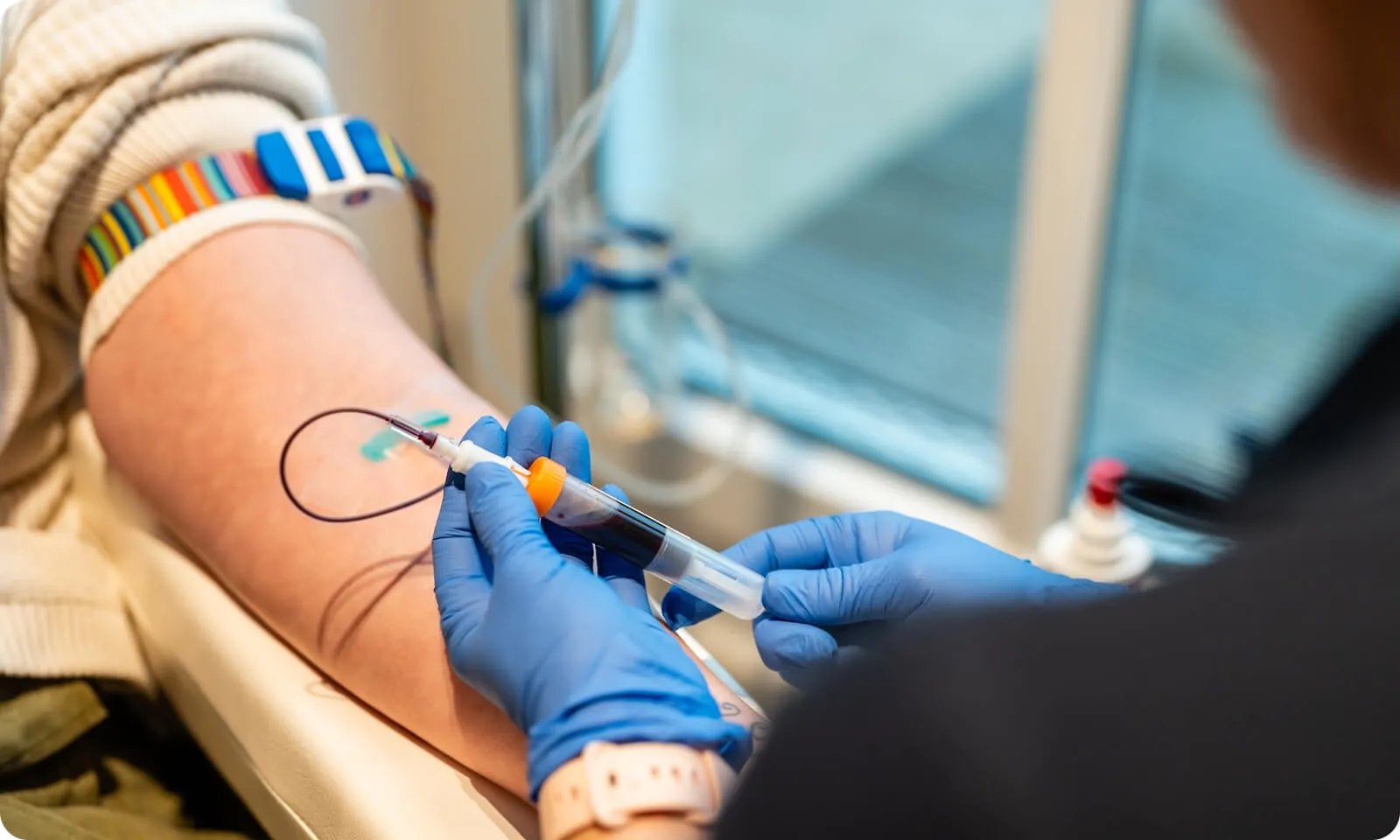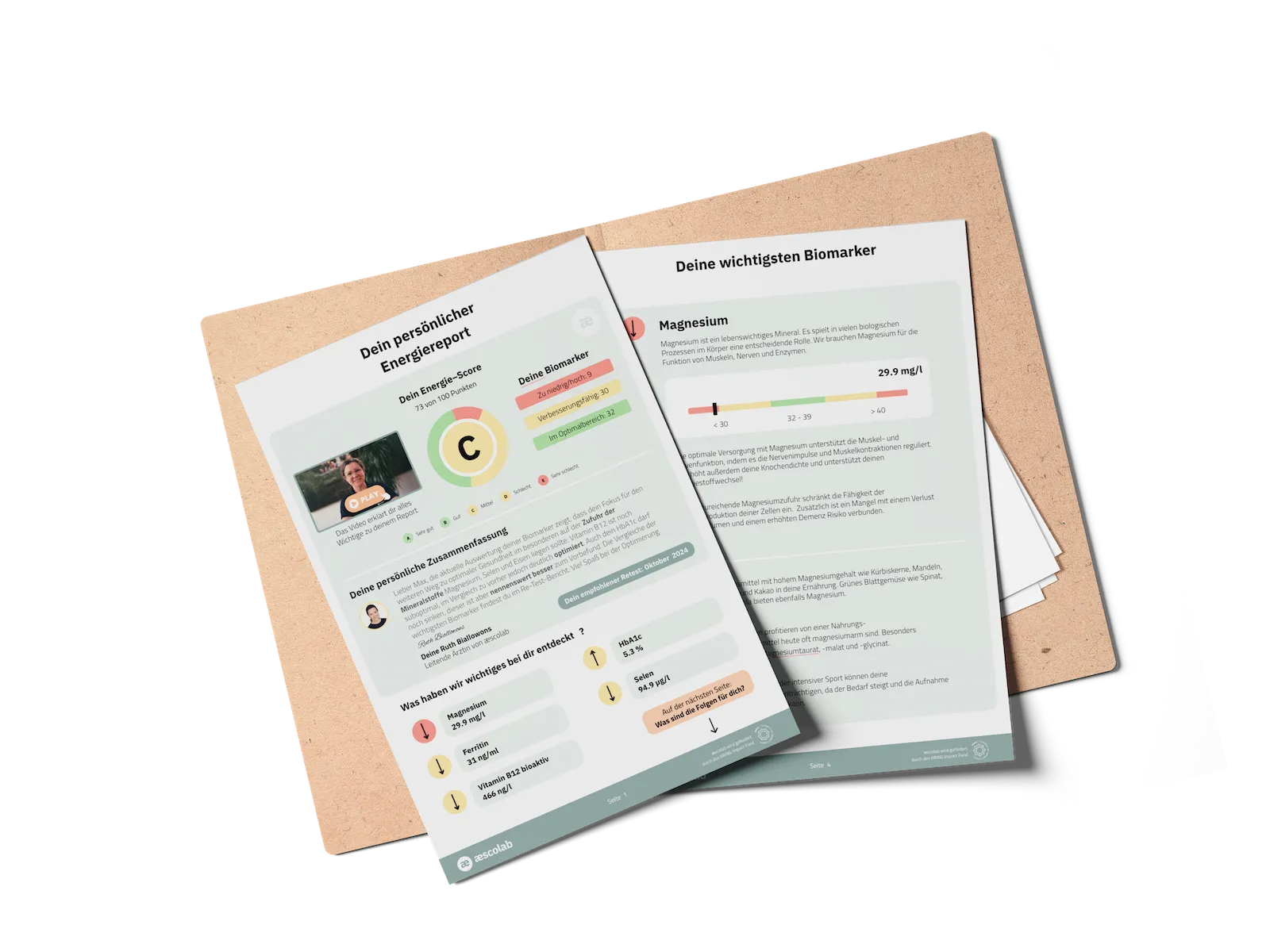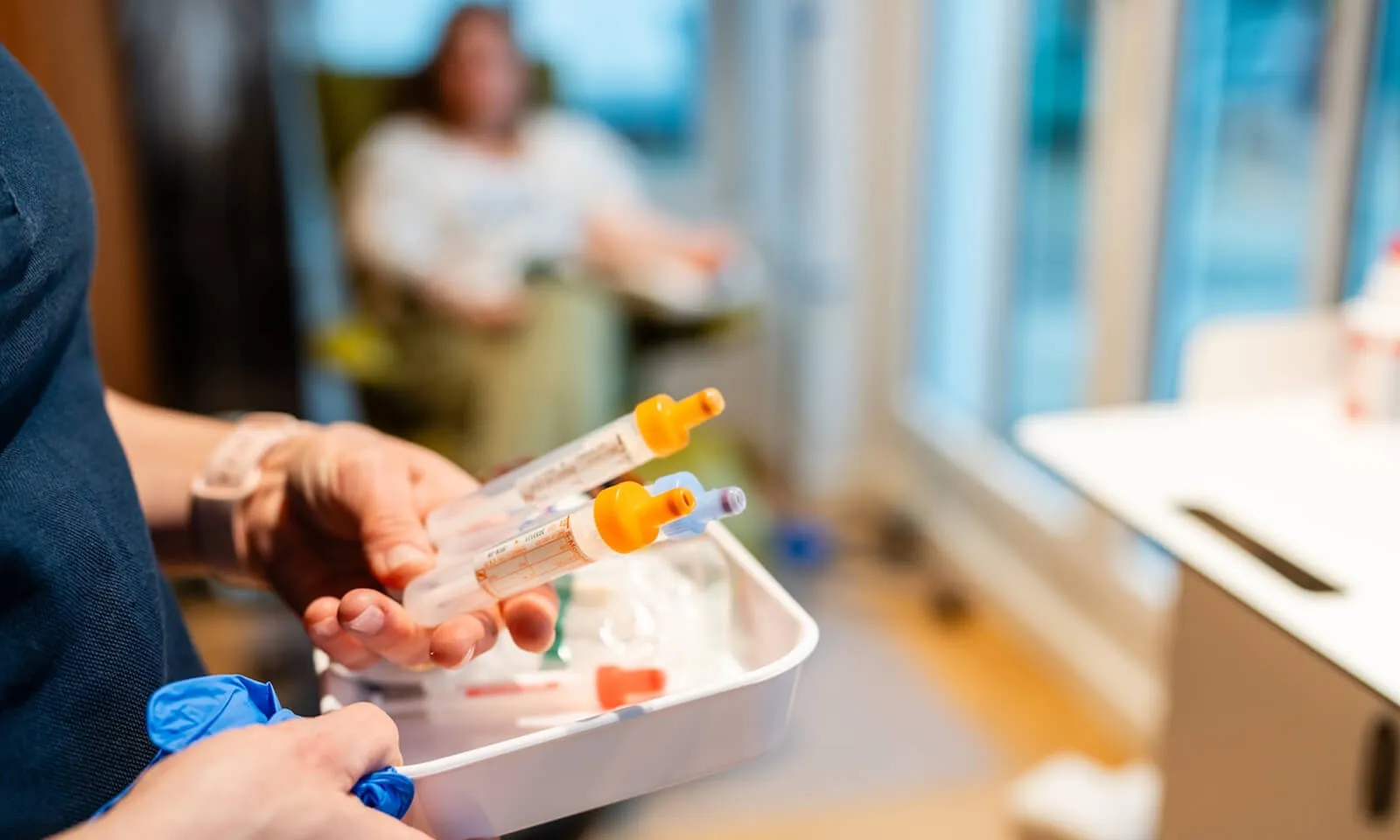How we work - evidence & blood analyses
17.10.2025

How we work
aescolab has set itself the goal of identifying resources to reduce health risks and utilize potential for performance and holistic well-being.
We see health not only as the absence of illness, but as an ideal state of full functioning of the biological, psychological and social systems of humans and society. aescolab supports experts in health, sport and fitness and all people who want to obtain a differentiated picture of possible influences on health, well-being and performance. The analyses should in no case replace medical diagnosis and therapy. A healthy diet, proper management of stress, restful sleep and targeted physical activity are resources of health, performance and well-being for us. Based on the tests, we provide targeted recommendations.
How do we do that?
Based on extensive laboratory analysis of specially selected blood values, we provide individual recommendations for the concrete improvement of energy and performance. The compilation of blood values is based on clinical evidence from scientific studies on the one hand and on decades of use and experience from clinical practice on the other. Here, the latest science is uniquely combined with years of clinical application.
What are the specifics of AESCOLAB blood tests?
- Our evaluations are based on analyses of blood serum and whole blood, because they provide greater information than serum blood, particularly with regard to micronutrients.
- In addition to the classic reference values as indicators for diseases, we define further optimal areas that provide information on the functional capabilities of organ systems. This broadens the focus on the interrelationships and optimal functional areas for optimal performance.
- aescolab analyzed a variety of blood values, so-called biomarkers, which go far beyond the scope of a standardized “large blood count.”
- In addition to analysis reports and personal recommendations for action, aescolab offers personal feedback, coaching and online tutorials.

1. Introduction: The value of blood tests in prevention
Blood tests play a crucial role in modern medicine, particularly in the prevention and early diagnosis of diseases. The analysis of specific blood levels, also known as biomarkers, can provide clues to imbalances in the body and potential health risks. At aescolab, we use this information to empower our customers and provide them with targeted health advice. Our evaluations are based on scientific study data and enable a holistic view of the state of health.
2. The significance of blood values and their evaluation
2.1 What are so-called biomarkers?
Biomarkers are blood levels. They are measurable evidence of biological states or processes in the body. They provide valuable insights into a person's health status and can point out potential health problems at an early stage. At aescolab, we analyse a variety of biomarkers, including complete blood counts, liver and kidney values, nutrients, cholesterol, sugar and iron metabolism, as well as a few selected vitamins and fatty acids.
2.2 The role of biomarkers in prevention
The determination of blood levels can be used for meaningful individual prevention. A biomarker such as long-term blood sugar (HbA1c) may indicate an increased risk of developing type 2 diabetes. Improving this biomarker through lifestyle changes, such as adjusting diet and exercise, can significantly reduce the risk. Our evaluations help to identify such risks at an early stage and to be able to take targeted measures at an early stage.
2.3. Chronic diseases — prevention could halt much of development
The effectiveness of preventive measures has been extensively investigated in large studies. Lowering systolic blood pressure by 12-13 points can reduce the likelihood of death from cardiovascular disease by 25%. Reducing total cholesterol levels by 10% can reduce the risk of coronary heart disease by 30%. In diabetics, every percentage point drop in the HbA1c blood test reduces the risk of microvascular complications (eye, kidney, and nerve disorders) by 40%.
Despite this evidence provided in studies, our healthcare system remains focused on treating diseases, not preventing them.
3. Our method: Scientifically based and holistic
3.1 Challenges of classical study designs
Traditional study designs, such as randomized double-blind trials, are often not suitable for clearly demonstrating the effectiveness of complex prevention programs. Too many variables and influences, such as environmental factors, dietary or exercise habits, make it difficult to achieve clear, objective results. At aescolab, we therefore rely on an evidence-based approach that takes into account both scientific data, many years of clinical experience and individual health parameters and thus provides a holistic picture of the individual situation.
3.2 Holistic Approach
Our analysis and evaluation methodology is based on a holistic view of health data. Instead of looking at individual biomarkers in isolation, we relate them to each other and analyze the interplay of various health parameters. This enables a more precise and comprehensive assessment of health status.
4. Evidence-based recommendations: diet, exercise, sleep and stress management
4.1 Basics of a healthy lifestyle
Aescolab's recommendations focus on the essential aspects of a healthy lifestyle: diet, exercise, sleep and stress management. These factors have a proven impact on health and can significantly reduce the risk of chronic diseases.
4.2 Lifestyle Intervention Studies
Numerous studies prove the positive impact of lifestyle changes on health. For example, research shows that a healthy diet and regular exercise can reduce the risk of cardiovascular disease, diabetes, and other chronic conditions.
5. Case studies and scientific data
5.1 Prevention of type 2 diabetes
A study by the Diabetes Prevention Program Research Group showed that intensive lifestyle interventions can reduce the risk of developing type 2 diabetes by 58%. Our analyses and recommendations are based on precisely these scientific findings and offer our customers concrete measures to reduce risks.
5.2 Improving work performance and reducing sick days
Studies show that an improvement in health status through targeted prevention measures can lead to a reduction in sick days and an increase in work performance. This shows the practical benefits of our services for individual and occupational health.
.webp)
6. Expert knowledge at aescolab
6.1 Ruth Maria Biallowons — specialist in general medicine with more than 17 years of clinical experience
With many years of experience in medicine and a comprehensive training portfolio, aescolabs Co-Founder and Head of Medical Ruth Biallowons brings outstanding expertise in the clinical evaluation of analyses and the following recommendations to aescolab. Their scientific background and clinical experience guarantee well-founded and precise health advice.
7. Conclusion: aescolab — your health is in good hands
At aescolab, we combine outstanding medical expertise with scientifically based methods to provide our customers with the best possible health advice. Our evidence-based analysis and holistic recommendations set new standards in preventive medicine and help you to sustainably improve and maintain your health.
About the author

Editorial team
We are aescolab, a team of medical experts, coaches and entrepreneurs who share one goal: to help people and companies achieve more energy, health and performance.
More interesting articles

Vitamin D: Key to Bones, Immune System and Wellbeing
Vitamin D is much more than just a vitamin — it is a Essential prohormone, which controls numerous vital functions in the body. Not only does it affect bone health, but it also plays a crucial role in the immune system, muscle function, and even brain health. Optimal vitamin D levels are associated with a lower risk of cardiovascular disease, autoimmune diseases, and certain types of cancer.
The problem: In our latitudes, sufficient vitamin D production through sunlight is often not guaranteed — especially during the winter months. Many people therefore unconsciously suffer from a deficiency, which can be associated with fatigue, vulnerability to infections, muscle pain or even depression.
This article shows you why vitamin D is essential for your health, how to identify a deficiency and what you can do to get your levels up to optimal levels.

Blood tests deciphered: Why not all analyses are the same






